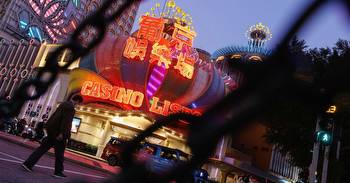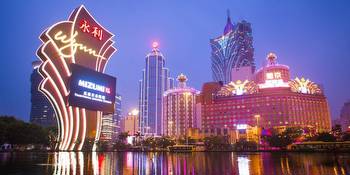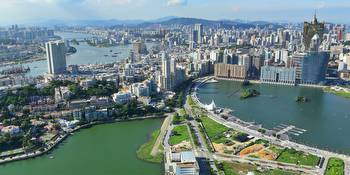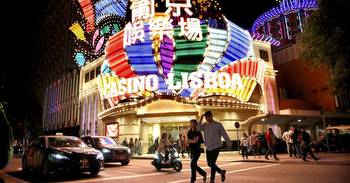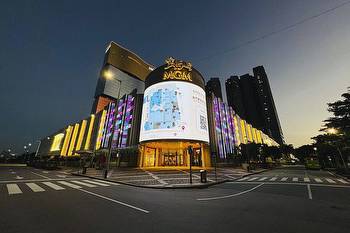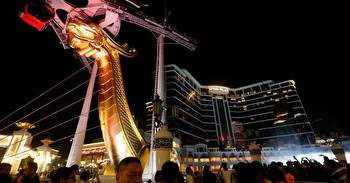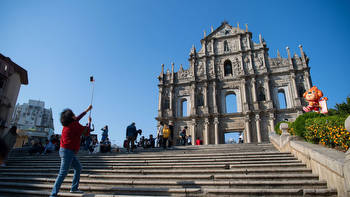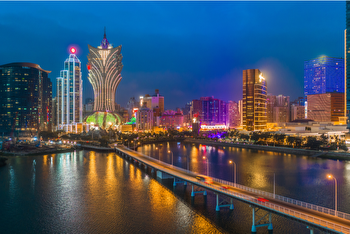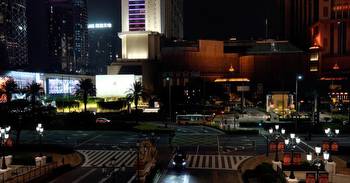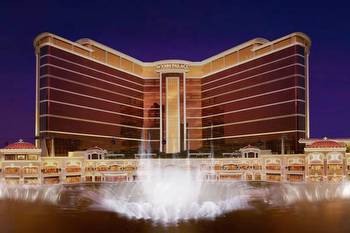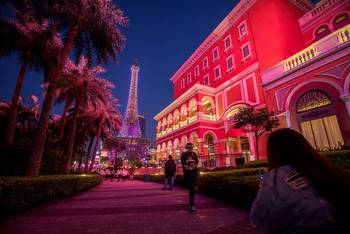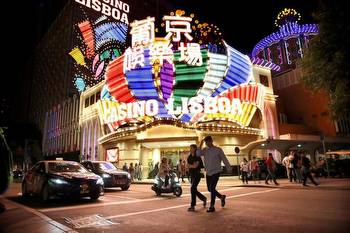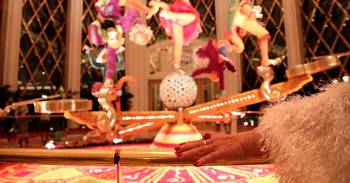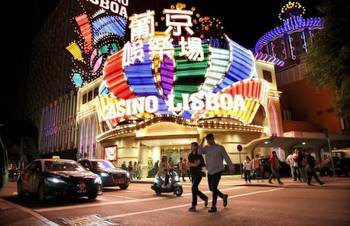Macau's Casino Stocks, Near Record Lows, Face Specter of Tough License Reviews
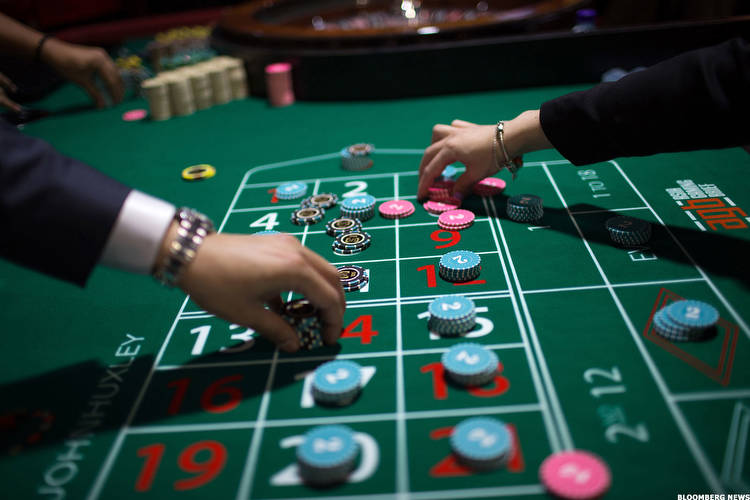
Macau's casino stocks are at or near all-time lows after a savaging this week, but it isn't the time to be buying them just yet. You need to be an exceptionally brave speculator willing to play a little Chinese roulette. There's too much uncertainty to be able to derive any sensible value in these names.
The spark for this latest selling is a review that the Macau government has just announced. All six casino operators will need to reapply for their licenses, which will expire in June 2022. The fear is that they may not all get them again.
I had highlighted Macau's casino stocks in August 2020 as the "most extreme bet" that investors could make on COVID recovery. At year-end, I identified one Hong Kong operator, Melco Resorts & Entertainment (MLCO) , as a top Asian stock to buy for this year. I stand by that analysis. But the situation has changed.
The problem is that Macau is cast adrift with three strong currents flowing against it.
First, COVID has decimated casino foot traffic. Tourism looks nowhere near like getting back on track, with Asia's vaccine program still pretty poor. That situation was improving but is back to square one thanks to the resurgence of the virus with the Delta variant.
Second, the U.S.-China trade war and intensifying political tensions make for a fraught backdrop. American operators in Macau have been making massive amounts of money. It has not gone unnoticed that foreign operators are therefore getting rich off the backs of local gamblers.
Third is the likelihood that gambling has Beijing's bull's-eye on its back. The central government is working down a long and lengthening hit list of companies and activities it doesn't much like and wants to see brought to heel under the control of the Chinese Communist Party.
The first problem can be quantified. You can work out how much revenue and profit casinos are likely to make based on projects of tourism numbers.
The second problem existed already, but was at first a trade issue. Now we are seeing whole deals being pulled, such as the collapse I discussed on Monday of the Blackstone Group (BX) buyout of the Chinese developer Soho China (SOHOF) . The Chinese monopolies regulator went silent, killing the buyout, even though there are almost 100,000 developers in China, many of them in dire need of financial aid.
The second problem has become worse, and the third problem is what's new. The regulatory roulette in China started with Alibaba Group Holding (BABA) and the forced collapse of its world-record initial public offering for Ant Group. It seemed company-specific. It no longer is.
Under President Xi Jinping, who clearly views himself as the successor to Chairman Mao Zedong, China is embarking on an agenda of social change that has more than a little similarity with the Cultural Revolution. The Chinese Communist Party banned gambling as soon as it took power in 1949, along with many other "bourgeois" pursuits. It's a natural target. And China seems to be heading inexorably back to 1949.
Gaming's evolution in China
U.S. casino operators dragged Macau's gambling into the entertainment era. When I first visited Macau in 2001, its casinos were awful. They were dreary places with coffee stains on the tables, cigarette smoke in the air and gamblers standing in rows three deep, betting on each other's hands. Whoever put down the most money called the shots, even if you were sitting with the cards.
The Sands Macao (using the Portuguese spelling for the city) changed that. It was the first American-built casino in Asia when it opened in 2004. It was bright, flashy, all gold mirrors and glamor. It was fresh air. It breathed new life into the industry.
Macau currently has three licensed casino operators, with "concessions" held by Macau-founded SJM Holdings (HK:0880 and SJMHY), Hong Kong-based Galaxy Entertainment Group (HK:0027 and GXYYY) and the first U.S. casino license holder, Wynn Resorts (WYNN) , now operating as Wynn Macau (HK:1128 and WYNMY).
Through a strange piece of legal sleight of hand, those three companies have been allowed to grant three "subconcessions," for a total of six operators. That allowed Sands China (HK:1928 and SCHYY), Melco International (HK:200 and (MDEVF) ) and MGM China (HK:2282 and MCHVY) to enter the market.
This odd subconcession system is likely to be eliminated, which quite honestly makes sense. It is not clear whether the number of first-hand licenses will then be expanded up to six. That's the outcome I would expect, but it's far from a clear bet. There's even talk of increasing the number.
The declines in casino share prices this week have been horrendous, reflecting that uncertainty. It is nothing short of one of the worst beats in gambling history. In the last five trading days in Hong Kong, Sands China is down 42%, Wynn Macau has plunged 35%, MGM China is down 31%, SJM Holdings is down more than 27%, Melco has fallen 27% and Galaxy Entertainment is off nearly 23%.
Notice a pattern? The U.S.-linked companies have all performed worst. All six companies all depend on Macau, almost exclusively. Melco, however, operates in Manila and is building what should be Europe's biggest casino resort, in Cyprus. Galaxy was bidding as Japan licenses its first-ever casino resorts but has walked away from that Osaka project. That's about it as far as outside income goes. Of course, like in Las Vegas, they're all intent on increasing nongambling profits in Macau.
In announcing the review, the government said it wants to "strengthen supervision" of the casino operators, which sounds ominous. It wants to "facilitate continued healthy development of the gaming sector," which could mean anything. And it wants to "enhance competitiveness," which also sounds good - but could be construed in any which way.
A review could be beneficial. Gambling is king in Macau, accounting for about 70% of tax revenue, 21% of the jobs and all of its future. It is the economic lifeblood of the city.
The review's particulars
The government is going to review nine issues, it says: the number of concessions; how long they last; job protection safeguards; stronger investigation methods for gambling promoters; potential criminal and administrative penalties; increased entertainment that's not gambling; corporate and social responsibility; increased legal supervision of the operators; and the introduction of government representatives at the concession companies.
Some of those sound like normal gambling issues. They're cranked up a notch because China wants to wrest control of any cash flows out of the mainland that operators of junkets enable. They take money from gamblers in China, then give them chips in Macau, offshore.
But there are some weird, worrying new elements. The Macau government says it intends to send "delegates" to work at the casino companies and monitor them. It has also proposed increasing how much local Macau investors own of the concession companies. That sounds an awful lot like the Communist-directed Macau government wants a direct ownership stake. It also says it wants to slap the casino companies with new rules about how they distribute profits to shareholders. Those could all be game changers.
It has been 20 years since Macau opened up the casino industry to competition. This review comes as the initial 20-year licenses expire, with the government able to extend them for at most five more years if it wants. A mid-term review in 2016 showed that the industry played "an obvious active role in promoting local socioeconomic development," Macanese Economy and Finance Secretary Lei Wai-nong says. But "certain social issues" have arisen, Lei adds, causing "insufficiency and lag," particularly in terms of supervision of the industry.
Stanley Ho's legacy
Macau liberalized its casino licensing in 2002. Prior to that, the tycoon Stanley Ho led a small consortium that had a monopoly on the gambling industry, one that the Eurasian billionaire had preserved since winning it in 1961. Even now, the consortium's gambling subsidiary SJM Holdings runs 20 out of the 41 gambling halls in Macau. For good measure, Ho's daughter Pansy owns 50% of MGM China, a joint venture with the U.S. company MGM Resorts International (MGM) , which owns the other 50% of the Macau operation. Pansy's share was diluted by the stock listing.
Within five years of that 2002 opening up, Macau had surpassed the Las Vegas Strip as the top gambling destination in the world. In 2019, its revenue take of US$360 billion at those 41 casinos was six times the total from the 144 casinos operating in Las Vegas.
Back when I identified Macau casinos as an aggressive "comeback" investment story, China had just started allowing individual travelers to go back to the city, the only place in greater China where casinos are legal. Even now, Macau's borders are still closed to any international traveler, and even visitors from here in Hong Kong can't get in.
COVID takes its toll
But of course it is China that counts. For the last pre-COVID year, the mainland accounted for 71% of the 39.4 million visitors who arrived in Macau in 2019. Hong Kongers made up another 19%. Throw in Taiwan, and 92% of all arrivals came from greater China.
The casinos closed entirely for 15 days at the onset of the pandemic. When they reopened it was a token gesture because Chinese visitors could not travel to Macau without onerous quarantines that made a trip entirely impractical. Getting Chinese visitors back is key, and happening.
Prior to the pandemic, Macau's resorts were running at 90.8% occupancy. But visitors came on short stays, with the average duration just 1.2 days, reflecting that more than half (52.7%) of the arrivals came on same-day jaunts. Hit the tables, head to the shops if you got lucky, go back home.
Macau had a slow start to its vaccination program, like Hong Kong, despite offering free doses. Right now, 53% of its residents have had one shot and 46% are fully vaccinated. That's pretty pathetic, considering vaccinations have been offered since February. The vaccination figures are worse even than here in Hong Kong, where 52% of the 7.4 million population is covered with two doses.
Macau is a small city, though, with only 683,000 residents. By some counts, this small peninsula on the Pearl River Delta is the most densely packed place in the world. As a result it has managed to prevent COVID outbreaks, catching any that do occur in the bud. It reports only 63 COVID cases since the entire outbreak began and zero deaths. But its "zero cases" policy risks sudden setbacks.
The 45-day public consultation just launched by the Macau government will run until Oct. 29. Let's be honest - it doesn't really matter what the public has to say on that "public consultation." The Chinese Communist Party is going to direct what happens. Ever since Portugal's return of its colony to Beijing's control in 1999, the Macau government has answered to Beijing's demands without the kind of opposition seen until recently in Hong Kong.
So the result of the review is unlikely to be pretty for the U.S. operators. Whatever happens, and even if the U.S. companies win a renewal of their licenses, it won't be business as it has been for the Macau casinos. The tables are still there, but the game is changing, and those tables can turn or be taken away.








